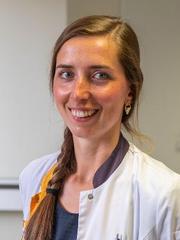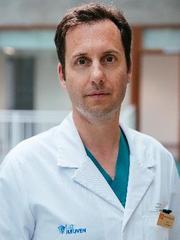Appointments
-
Not yet a mynexuzhealth user? Request an appointment online.
-
Call +32 16 33 23 40
- Mondays to Thursdays from 08:00 to 18:00
- Fridays from 08:00 to 17:00
Types of acoustic implants
This list is non-limitative and can differ from patient to patient.
Bone conduction device
A bone anchored hearing device transmits sound vibrations through the bone to the inner ear. It can be used in children and adults for uni- or bilateral outer and middle ear disorders, chronic middle ear infections with conductive or light mixed hearing loss, radical cavity, single side deafness. Certainly in case where middle ear surgery is not indicated. It can be percutaneuous (through the skin) or transcutaneous (keeping the skin intact).
Active middle ear implant (MOI)
Partially or totally implantable device linked to the middle ear structures such as the ossicles, round or oval window of the inner ear. The outer ear canal remains free. Used in cases of conductive hearing loss or mixed forms, such as congenital external and middle ear disorders, chronic middle ear infections, radical cavity, severe otosclerosis. Also in case of serious outer ear infections with noise-induced or age-related hearing loss, impairing the use of conventional hearing aids.
Direct acoustic cochlear implant (DACI)
Can be used in case of severe mixed hearing loss, as in advanced otosclerosis (with fixation of the stapes), congenital middle ear disorders, tympanosclerosis because of chronic middle ear infections and radical cavity.
Preparation
- Hearing tests and questionnaires
- Test with bone anchored device or hearing aid
- Extensive counselling and support by a ENT specialist and MUCLA, grouped in the MOI team.
- Radiological tests: MRI en CT petrosal bones
Aftercare
This is largely dependent on the type of implant and the procedure. Ask your specialist for more information.
As an hearing-impaired person, you will be supported throughout the entire care path (from diagnosis to surgery to adaptations) by our specialised MOI team. The University Hospitals Leuven see hearing-impaired people for implants from all over the country. Therefore, we look for the most optimal rehabilitation programme. We also welcome people from abroad.
Specialists

